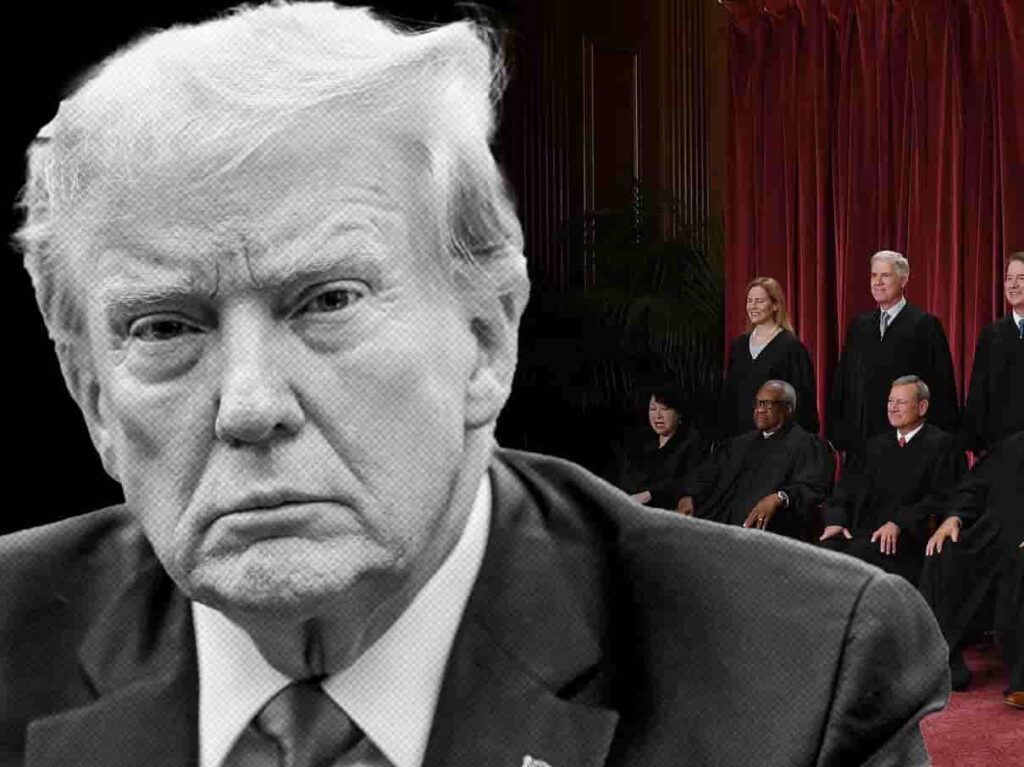US Supreme Court deliberates Trump disqualification case; legal and democratic implications explored.

US Supreme Court Deliberates Trump Disqualification Case: Exploring Legal and Democratic Implications
In a momentous session at the US Supreme Court, justices convened to deliberate over a landmark case that could profoundly shape the future of American democracy. At the heart of the debate lies the question of whether former President Donald Trump should be disqualified from the 2024 presidential ballot, a decision that could have far-reaching legal and democratic ramifications.
The proceedings unfolded against the backdrop of a Colorado Supreme Court ruling that barred Trump from appearing on the state’s presidential primary ballot. This decision, rooted in Section 3 of the 14th Amendment, which prohibits individuals who engaged in insurrection from holding office, triggered a cascade of legal challenges and impassioned debate.
Also Read:- Biden’s Defense: Classified Docs Scrutinized
As justices heard oral arguments, a majority, including liberal members of the court, expressed skepticism about the Colorado Supreme Court’s ruling. Central to their concerns was the issue of states’ authority to disqualify federal candidates, prompting a robust exchange with attorneys representing Trump and the plaintiffs.
The crux of the matter lay in interpreting constitutional provisions and their applicability to presidential candidates. Justices grappled with questions about the constitutional framework, the implications for democracy, and the potential inconsistencies that could arise if states were allowed to disqualify candidates using disparate standards.
One key contention raised during the proceedings was whether the definition of “insurrection” under Section 3 of the 14th Amendment encompasses the events of January 6, 2021, when a violent mob stormed the US Capitol. Plaintiffs argued that Trump’s actions amounted to incitement and constituted a clear breach of the constitutional oath, warranting disqualification from holding office.
However, the debate extended beyond legal interpretation to encompass broader questions about the fundamental principles of democracy. Critics of the lawsuit, including some Trump opponents, cautioned against using disqualification as a tool to exclude candidates from the electoral process, emphasizing the importance of allowing voters to decide at the ballot box.
Conversely, proponents of disqualification argued that Section 3 of the 14th Amendment serves as a critical safeguard against threats to democracy, providing a mechanism for holding individuals accountable for their actions. They contended that the framers of the amendment intended it as a form of constitutional self-defense, designed to protect the integrity of the electoral process.
The case has attracted widespread attention not only for its legal significance but also for its potential impact on the democratic fabric of the nation. Beyond the specific question of Trump’s eligibility, the ruling could set a precedent that shapes future election dynamics and informs the interpretation of constitutional provisions related to presidential candidacy.
Also Read:- Shocker in Nevada: Nikki Haley Crushed by ‘None of These Candidates’! What’s Next for Trump and Biden?
Plaintiffs in the lawsuit, including former Republican Representative Claudine Schneider and former Colorado Majority Leader Norma Anderson, represent a diverse array of voices seeking clarity on the application of Section 3 of the 14th Amendment. Their participation underscores the broader societal implications of the case and the importance of upholding democratic principles in the face of constitutional challenges.
As the US Supreme Court deliberates, the eyes of the nation are fixed on the outcome, cognizant of the profound impact it could have on the future of American democracy. Whatever the ruling, it is certain to shape the contours of presidential eligibility and influence the course of political discourse for years to come.
